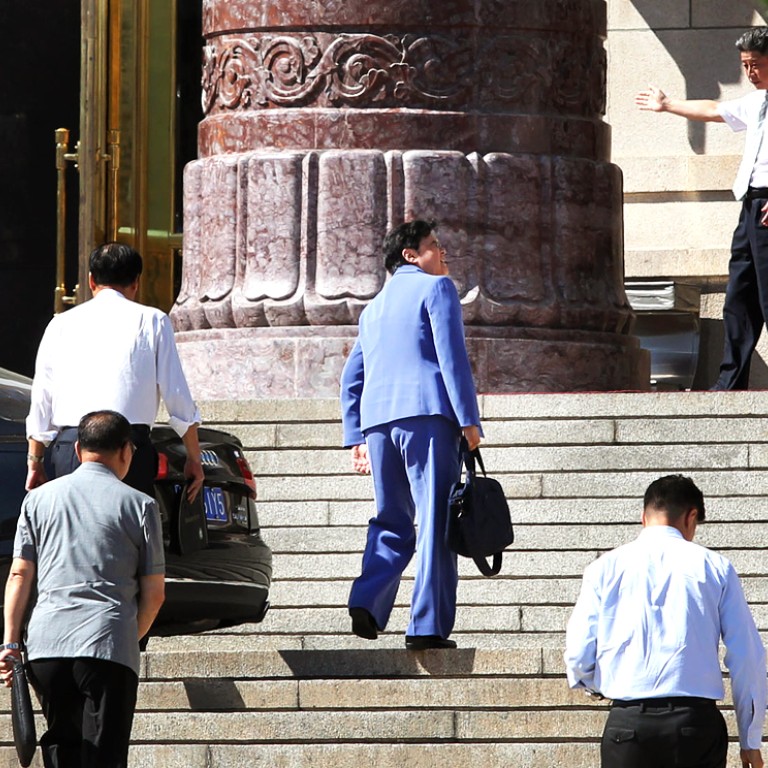
The more you protest, the less Beijing will bend, democracy activists told
HK’s representative on NPC Standing Committee, which will decide 2017 poll format, says democracy protests will only prompt bigger pushback
The more Hong Kong activists talk about using civil disobedience to press Beijing to heed demands for greater democracy, the more it will stand firm on electoral reform, the city's sole representative on the country's top legislative body warned yesterday.
Rita Fan Hsu Lai-tai offered the warning as the body, the National People's Congress Standing Committee, began a week of deliberations to define the framework by which Hong Kong will elect its next leader in 2017.
Fan also issued her strongest criticism yet of the architect of the Occupy Central civil disobedience movement, describing Benny Tai Yiu-ting as "completely unacquainted" with how China works.
"The more [people] behaving or speaking like Tai, the more detailed the Standing Committee's decision will be and the less likely it will be that [the activists] achieve what they hope," Fan said. "Because if the central government softens [its stance], it would only encourage more threats and illegal acts."

Tai responded that the main purpose of the campaign was not to threaten Beijing but to raise Hongkongers' awareness.
"The governance problems in Hong Kong will continue without a fair electoral system. What Beijing should do is to give Hongkongers genuine universal suffrage rather than suppressing the Occupy movement," Tai said.
Fan said the meeting would continue this morning with the first group discussions on the Hong Kong government's report on political reform, which seeks the Standing Committee's approval for an overhaul.
If the Standing Committee concludes tomorrow that its members agree to allow the overhaul, more group discussions will be held on Thursday, before a final session on Sunday at which a vote will be held to seal the decision on the city's future electoral arrangements, Fan said.
Li Fei , chairman of the Basic Law Committee of the National People's Congress, will attend a briefing in Hong Kong the following day to explain the decisions. Zhang Rongshun, vice-chairman of the NPC standing committee's legislative affairs commission, and Feng Wei, the deputy director of the State Council's Hong Kong and Macau Affairs Office, will also attend.
Some of the 12 local deputies to the NPC invited to sit in on the meetings said they expected the Standing Committee to require candidates to secure the support of half the members of the nominating committee to qualify for the public vote.
reported yesterday that the Standing Committee could also rule that no more than three or four candidates would be allowed to run.
Pan-democrats oppose a cap, but NPC deputy Ma Fung-kwok said the election could be chaotic with too many candidates. Former chief secretary Henry Tang Ying-yen also said it would be reasonable to impose limits on the city's first popular election of its leader and that electoral methods could be improved in future.
The official ran an article in its overseas edition saying Beijing's stance on political reform would not soften.

